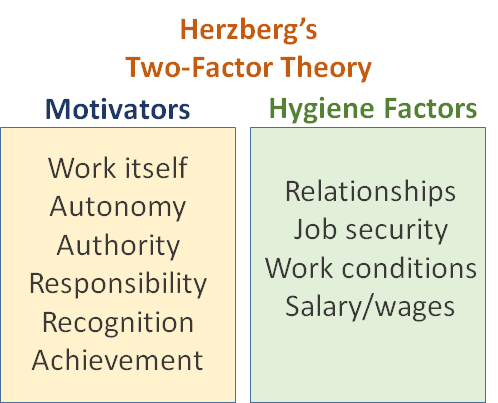“They can’t leave now!! Do something! Throw some money at them!”
Have you ever felt that panic when a good employee resigns? Incenting them to stay is a common knee-jerk reaction.
From employees to electric cars, we’ve tried to change behavior and buying habits by financing a better option. It doesn’t work. Discounts and bonuses may provide a momentary bump in motivation, but they have no staying power. They aren’t sticky.
Employees who have decided to leave a job may change their mind for a retention bonus, but their heart has already exited and it’s extremely hard to re-ignite it. Once the money is spent or folded into the budget, its power fades immediately. Until you offer more…
That’s why paying constant overtime can be dangerous. Employees adapt their spending to the extra cash and when the party ends, they wind up overextended. The income drop can cause resentment and inspire work slowdowns to ‘compensate’ for the drop in remuneration. Lose-lose.
In his two-factor theory of motivation, Frederick Herzberg described money as one of several hygiene factors – elements that meet our basic expectations (I work, therefore you must pay me), but don’t motivate us to higher levels of performance. They are mechanisms of compliance, not commitment.

Application
As change leaders, we aim to influence our employees to work differently. The most commonly used lever for changing minds is to speak to benefits or WIIFM. Yes, self-interest is a useful starting point for sparking interest, but don’t waste time trying to oversell monetary benefits (wages, bonuses, stock gains) which cannot be guaranteed anyway.
Instead of cash, put the spotlight on community, connection, care, clients, and customers. Lean on recognition and additional responsibility to inspire.
If you want buy-in and sticky change, motivate with purpose, meaning and opportunities to grow!
Thoughtfully yours,
Jeff Skipper



